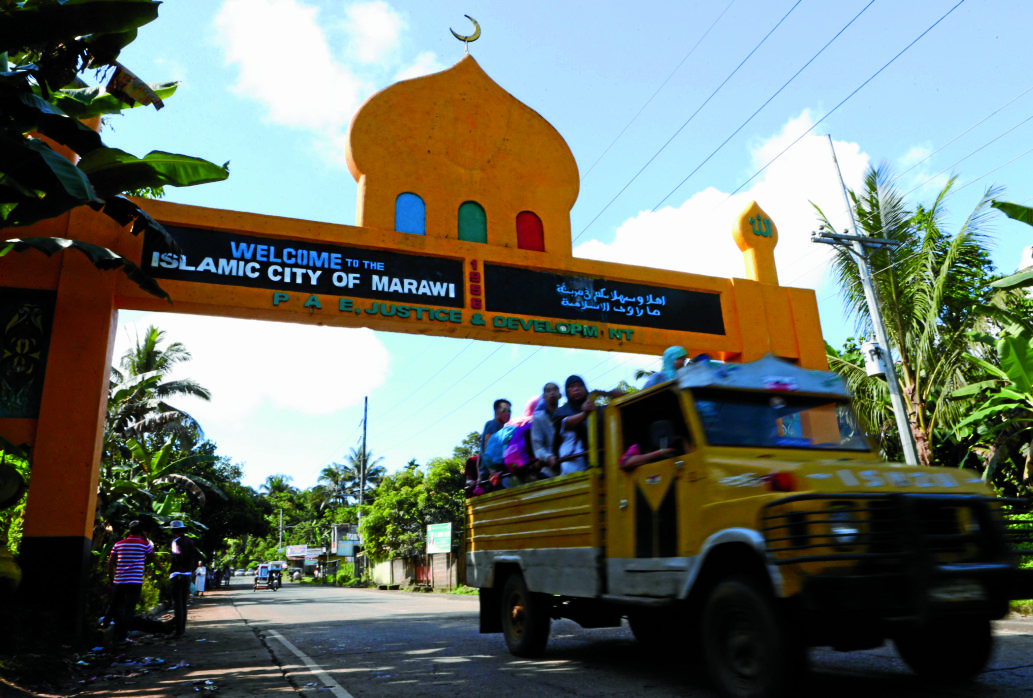
Residents evacuate Friday, May 26, 2017 in Marawi City. Ongoing clashes between government security forces and ISIS-linked militants forced massive exodus of terrified residents in the city. Jeoffrey Maitem / INQUIRER MINDANAO
MANILA, Philippines — Mindanao faces the biggest threat of terror attacks by the Islamic State (IS) fighters even as this risk is expected to be contained and not spill over elsewhere in the country thanks to martial law in the southern island, a global risk management, insurance and reinsurance brokerage services provider said.
“After IS lost territory in Iraq and Syria in 2017, it shifted focus to other countries with fragile security environments, particularly Afghanistan, Nigeria, and the Philippines. The group and its supporters mounted at least twice as many attacks in these three countries in 2018 compared with the year before,” Aon said in its 2019 Risk Maps report covering political risk, terrorism, and political violence.
Across Southeast Asia, the frequency of IS-led attacks increased by about 30 percent last year, according to Aon.
“The threat is highest in the southern Philippines, but also extends to Indonesia, and to a lesser degree, to Malaysia and Singapore,” it added.
In the Philippines alone, the frequency of IS jihadist attacks rose by over a fifth in 2018, Aon said.
While the number of attacks and the scale of their threat grew, Aon noted “security forces across Southeast Asia have demonstrated considerable efficacy in dismantling jihadist cells and preventing attacks.”
Citing data from The Risk Advisory Group, Aon said 24 IS plots were foiled by security forces in the region last year, up from 17 in 2017.
“In particular, the authorities in the Philippines have had success in preventing the jihadist threat from spreading beyond the south of the country. They have done so through enhanced intelligence gathering efforts and the extension of martial law in Mindanao,” Aon said.
“This has made it more difficult for the various jihadist groups active in the southern Philippines to coordinate and seize new territories, as they did in Marawi in 2017. Instead, jihadists militants, and particularly IS-linked groups, appear more intent on initiating terrorist attacks. This appears to be part of a broader, global IS strategy to adapt its tactics to insurgency rather than holding territory,” it added.
Marawi City was flattened by five months of fighting between government forces and IS supporters in 2017.

